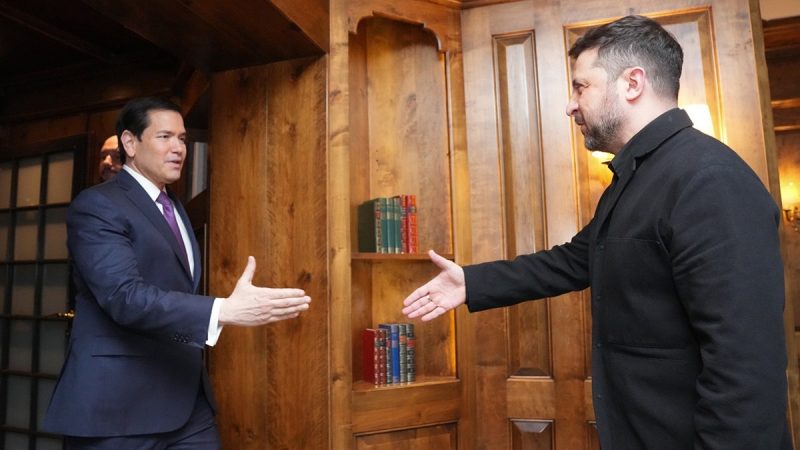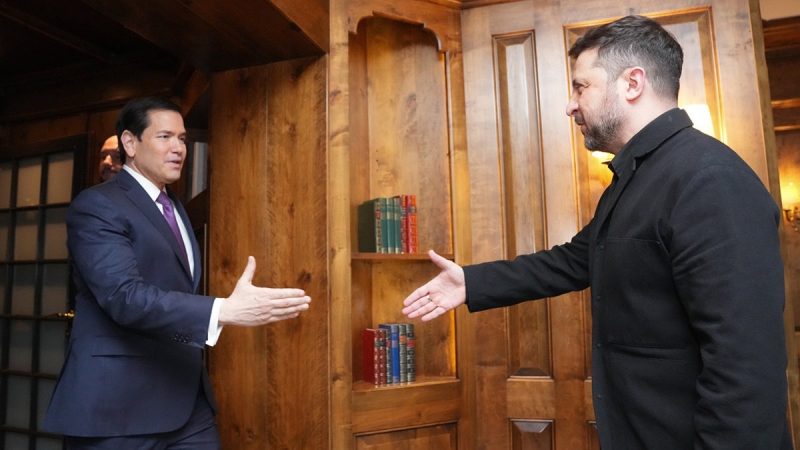
Secretary of State Marco Rubio defended the U.S. capture of former Venezuelan President Nicolas Maduro on Sunday, going on to call out a reporter for supposedly trying to stir up tension during a press conference.
Rubio made the statement during a joint appearance with Slovakian Prime Minister Robert Fico. A reporter referenced Fico’s previous criticism of the U.S. operation against Maduro and asked whether he stood by it, leading Rubio to address the issue first while he was answering other questions from the same reporter.
‘I think you asked him a question in order to, like, see if you can get him against us, or something… A lot of countries didn’t like what we did in Venezuela. That’s okay. That was in our national interest,’ Rubio said.
‘I’m sure there’s something you may do one day that we don’t like, and we’ll say we didn’t like that you did this,’ Rubio continued, while turning to Fico. ‘So what? That doesn’t mean we’re not going to be friends, we’re not going to be partners,’ Rubio said.
‘We have very close allies that didn’t like what we did in that regard. I can tell you what, it was successful. It was necessary, because the guy was a narco-terrorist, and we made him a bunch of offers,’ the secretary continued.
‘And look what’s happened in Venezuela in the six weeks since he’s been gone,’ Rubio said acknowledging that the country still has ‘a long way to go.’
‘There’s still much work that needs to be done, but I can tell you Venezuela is much better off today than it was six weeks ago. So we’re very proud of that project. And I know some will disagree … I think everyone can now agree that Venezuela has an opportunity at a new future that wasn’t there six weeks ago,’ he added.
Rubio’s statement comes days after President Donald Trump recounted the military’s strength during the operation to capture Maduro. Trump, speaking in Fort Bragg, North Carolina, honored U.S. special forces and their families for their roles in the operation.
‘It was in a matter of minutes before (Maduro) was on a helicopter being taken out of there. They had to go through steel doors,’ Trump said Friday afternoon. ‘The steels were like it was like paper-maché. You know what paper-maché is? That’s weak paper.’
U.S. special operations forces carried out the successful capture of Maduro and his wife on sweeping narcotics charges. Trump celebrated that there wasn’t single U.S. casualty during the operation, despite Maduro being housed on a heavily-armed military base.
‘These guys blasted through every door,’ Trump continued Friday. ‘They got up to him before he got to the big safe. But that wouldn’t have worked either, because they had equipment that was going to knock that out in a matter of minutes, but he never got there. It went so fast.’
Maduro was whisked off on a helicopter, before he was brought to the U.S., where he faces federal charges, including narco-terrorism conspiracy, cocaine-trafficking conspiracy and weapons-related offenses. He is being held in federal custody at the Metropolitan Detention Center in New York City.
Fox News’ Emma Colton contributed to this report.





















